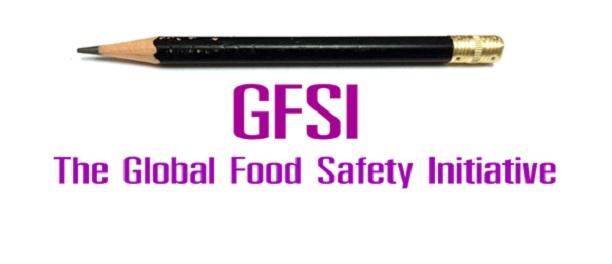ISO 9001 is the standard for anyone looking to receive a Quality Management System (QMS) certification. However, many processors who already have the Global Food Safety Initiative (GFSI) certification will have worked with some form of ISO 9001 already, depending on the GFSI scheme their company has chosen.
Is ISO 9001 GFSI recognized? The answer depends on the GFSI scheme the company has chosen to use for its management system. ISO 9001 can be a great jumping off point for the food safety and quality certification, but you may also need other certifications depending on your company.
It is important to know which certifications and training you already have so that you can decide whether or not to get certified in ISO 9001.
Upon receiving any certification within the field of systems and quality management, it is important to understand exactly what you have received so that you don’t end up wasting time and money on a certification you may already have.
Keep reading to find out more about the relationship between ISO 9001 and GFSI, so that you can continue to produce high-quality work and receive the necessary certifications to do so.
Again, it all depends on the scheme chosen for GFSI certification. SQF includes an ISO 9001 section, while other schemes do not. You will have to get food safety and quality certified by one of these organizations in order to do food handling and processing.
Parts of ISO 9001’s documentation, standards, and quality reviews match SQF code during the certification process, so that may be enough to match the requirements of your company.
There is, however, no way to know for sure if ISO 9001 is right for you unless you have spoken to your management. Some GFSI schemes do not include ISO standards, so if your company is running one of these schemes, it may not be beneficial for you to have the ISO 9001 certification.
Still, multiple certifications can only enhance your knowledge-ability and know-how in the work force. The ISO 9001 certification is good to have regardless to ensure the highest quality standards are always met and to look ahead to customer and regulator relations.
If you are unsure about the ISO: 9001 certification, ask your supervisor which program is optimal for you.
If you don’t yet have a job or are in transition, ISO 9001 is in fact recognized by a majority of GFSI schemes, so it could be good just to bite the bullet and get the certification.
It is important to remain knowledgeable as standards change because certifications need to be up-to-date.
Ask questions and discover your needs for the type of work you will be doing before putting your time and money toward any kind of certification. You will be thankful you did.

GFSI is the Global Food Safety Initiative. It defines itself as an organization that “brings together key actors of the food industry to collaboratively drive continuous improvement in food safety management systems around the world.” In other words, it is the international standard for food safety.
The organization was created in 2000 in order to collaborate, reduce safety risks, audit mistakes, and to craft a safer food world for all. The main objectives of the organization, according to the GFSI website, are included in the following list.
GFSI sets the benchmarks for food safety and quality so that consumers receive the best product possible and companies, in turn, increase their revenue. The standards and audit process are in place so that safety is a priority and quality is a requirement.
There are different certifications and programs that fit within the regulations for GFSI. Some of those programs include SQF, BRCGS, FSSC 22000, Global Red Meat Standard, IFS, and more. Not all of these certifications are required of everyone working in the food processing industry.
Although ISO: 9001 is not on the list of GFSI-recognized providers, much of its curriculum is also included in the schemes listed above. You will most likely need some other form of certification to become completely GSFI approved, but the ISO 9001 is a great place to receive information about quality standards.
Although it would take a whole new article to layout all of the standards outlined by GFSI programs, there are a few common standards that are pretty universal across the food service industry.
Most schemes will have three parts to their requirements, including the audit protocol, requirements for accreditation bodies, and audit requirements necessary to achieve certification. These categories are often rich in their own details, and what may seem simple on the surface must be carefully studied.
GSFI is in place to make sure establishments and employees use safe practices to ensure the well being of themselves and their customers for the long term. The following are the main areas upon which GFSI schemes most commonly focus.
Within each of these categories, the main requirements focus on sanitation, workability, and employee welfare. To make the product safe for the public, it must first be safe for the employees working with it. Audits happen not only to ensure the quality of the final product, but also every step that goes into it.
For example, it is not enough just to wear the proper uniform and safety gear on the job, but most establishments require a locker room so that cross contamination with street clothes and work clothes is prevented.
Another more specific example would be the separation of the HVAC systems for the Raw and RTE spaces if possible. This way bacteria are not spread throughout spaces where it should not be present. These changes make huge differences in the safety of the employees and the food.
While you may think the standards for sanitizing and maintaining these areas are second nature, it is important to know the specifics of each section in order to achieve certification.
When it comes time to begin working toward that GFSI certification, there are a few important things to remember. First, you should know exactly which certification you need by looking at the company or industry category you work for. Different companies use different schemes based on their industry focus.
You will then need approval for an audit from an approved certification body. This is anyone who is approved by the certification program owner (CPO). Once a CPO is selected, find out which program they can audit against.
Before the audit, find a copy of the certification program you and your CPO have selected. Study the entire program, not just the key points. Also, ensure that you can pay for the reception and maintenance of your certification before undergoing the audit process.
The CPO can help you decide which program is right for you, so be sure to keep a close contact with that person as you work toward certification. Also, know that you may be eligible for a pre-audit so you can test your skills and knowledge before the actual audit is filed.
Once you achieve certification, you must work to maintain and update it as necessary. Be sure to check with your CPO about the requirements for this procedure.
Overall, the process should be fairly simple, especially if you know exactly which certification you need. Here is a quick list of reminders and tips for the certification process.
Finally, trust your own judgment. If you have spoken with supervisors and coworkers about the certification program that’s right for you, then you will most likely choose the right program.
And, there is no such thing as being over-certified, so if you do end up doubling up on certifications, that will be better for you in the long run. Trust your gut, study up, and let’s get certified!
ISO 9001 & Other Standards
Written: 26th July 2019
Author: Richard Keen

Richard is our Compliance Director, responsible for content & product development.
But most importantly he is ISO's biggest fanboy and a true evangelist of the standards.
Learn more about Richard